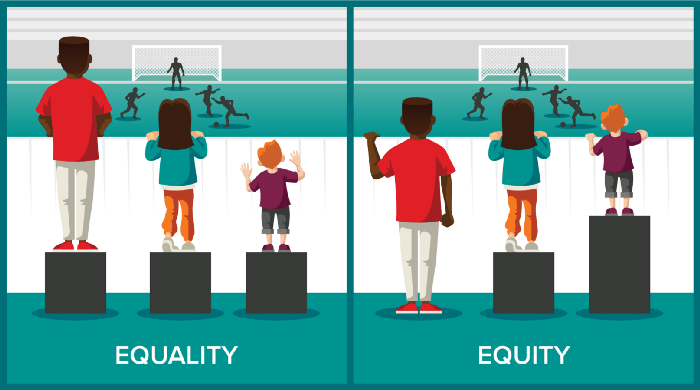The Catholic Church traces its history back nearly 2,000 years. With a significant history, both shaping and shaped by social change, the Church today stands on new ground. The call of the baptised is to live out the Gospel in our communities, ultimately reigniting a Christ-centered hope for us all.
As a Catholic organisation, we strive to create prosperous communities ultimately impacting the lives of many individuals within each of those communities. These people sitting in classrooms, in hospitals, or aged care homes may be Catholic, or they might not, however because of our faith and our guiding principles, we protect and promote the dignity of every person where we can.
To help us live out the Gospel, we were given commandments, in particular, two great commandments summarised by Jesus in the New Testament:
- “You shall love the Lord your God with all your heart and with all your soul and with all your mind.” (Matthew 22:37)
- “You shall love your neighbour as yourself.” (verse 39)
These are simple enough to share by word, but how do we effectively translate this into action? The answer is Catholic Social Teaching. These teachings are embedded in the Old Testament and were continually developed as the Church engaged with significant social issues over the years. Catholic Social Teaching encapsulates learnings from the Scriptures but also experience, studies and reflections of people throughout the history of the Church.
The teachings are not a set of rules or a policy statement but rather pillars that we must constantly remind ourselves of when we respond to the world around us in order to protect human dignity at all times.
Over time, these teachings have served many organisations, government bodies, and others as they navigate uncharted waters and complex societal issues in a rapidly changing world.
Catholic Social Teaching also serves as the foundation that the Catholic Development Fund (CDF) was built upon.
What is Catholic Social Teaching?
Catholic Social Teaching addresses issues concerning matters like oppression, subsidiarity, social organisation, social justice, and wealth distribution.
As the term ‘social’ implies, these teachings do not only exist to serve your immediate family and friends, or just Catholics. They are to improve the lives of entire communities.
At its core, Catholic Social Teaching is there to promote the dignity of the person. When this function is served, respect, peace, and justice will follow within each and every community.
CDF is guided by these principles, and the Catholic Social Teachings that resonate most among our people are these five:
The Principle of Association
No person is an island.
God never intended for us to live alone. Human beings are not only sacred but also social. In the Creation story, God realised that it wasn’t good for Adam to live in isolation as the sole human. So He gave Adam a partner — Eve.
No one deserves to be left to their own devices. The world presents many challenges, and we only have each other to keep it beautiful and harmonious, as God intended it to be. So wherever possible, we must extend our help to those who need it.
The centrepiece of society is the family, and therefore, to build a community that fosters growth and protects each other’s rights and dignity – this has been ingrained in Catholic history as we treat everyone like family.
The way that we care for our parents and children should also be the way that we care for others. The generosity we show our brothers and sisters should be shown too to others.
It is in offering ourselves to service that we can find fulfilment.
The Principle of Participation
People have a right to shape their own lives and the society in which they live.
Everyone has a role in impacting, building, developing, and shaping our society. We all have a right not to be shut out from participating in institutions that seek the common good and the wellbeing of others.
This applies in work, for instance. According to the Reflections of the U.S. Catholic Bishops, “Work is more than a way to make a living; it is a form of continuing participation in God’s creation. If the dignity of work is to be protected, then the basic rights of workers must be respected–the right to productive work, to decent and fair wages, to organise and join unions, to private property, and to economic initiative.”
Working is one way to find and pursue your vocation, which means doing what you love while also fulfilling what the world needs.
By exercising our right to participation, we can do more to promote and protect the dignity of others. And by allowing others to exercise this same right, we give them a clearer avenue in improving our society.
The Principle of Preferential Option for the Poor and Vulnerable
With all the pleas for equality from the marginalised members of society, we tend to have different understandings on what the term “equality” means.
In many cases, we are fighting for equity, and not just equality.

As shown, equality means treating everyone, regardless of their conditions and circumstances, the same. Equity, on the other hand, means treating people differently depending on their needs.
Things like money and food have different values to different people. A bowl of soup can be wastage for some but an entire day of food for others. In the story of the Widow’s Offering, Jesus claimed that the widow who offered two small coins in the treasury had offered more than any of the wealthy people did, because the rich had contributed from their surplus wealth, but the widow contributed her whole livelihood.
Throughout the Gospel, we are reminded that God stands firmly on the side of the most marginalised members of society. We all have our needs, but some need more than others do.
“Scripture teaches that societies and people will be judged by how they treat the poor and marginalised. On this basis, Pope John Paul II taught that preferential option for the poor is a prime objective of Christian charity,” says CDF’s CEO, Matthew Cassin.
Especially in times now where the divide between rich and the poor continues to grow, we must prioritise helping those who truly need it — those who struggle to feed themselves every day, those who face discrimination just for existing, those who are disabled, and those who are shunned by society.
The Principle of Subsidiarity
It’s impossible to promote human dignity without respecting the needs of the family and other local groups.
That’s why the principle of subsidiarity is vital in recognising the dignity of the person. It respects that decisions must be made by the people closest and most affected by the issues of the community.
The Catechism defines subsidiarity as the principle where “a community of a higher order should not interfere in the internal life of a community of a lower order, depriving the latter of its functions, but rather should support it in case of need and help to coordinate its activity with the activities of the rest of society, always with a view to the common good.” (CCC 1883)
The local government, for example, can and must make the most informed decisions for the community they serve. Higher levels of government should only intervene when the lowest levels can no longer promote human dignity on their own.
“Connection and cohesion tends to break down when groups become too big and disparate, creating a risk that the welfare of individuals within the group will be neglected,” says Matthew.
“It may also be the case that smaller local associations better promote the dignity of the person as they may have a better understanding of the needs of the local community, are better able to serve the needs of the people in that community and offer a more direct avenue for social inclusion.”
The principle of subsidiarity goes hand-in-hand with the principle of participation in making sure that our voices are heard and our actions matter.New Paragraph
The Principle of Common Good
In a genuinely healthy community, the dignity of each person is protected and everyone flourishes.
This is what we want for our society: a community that fosters growth, a community that helps each other, and a community where everyone can achieve fulfilment.
According to the Second Vatican Council in Gaudium Et Spes, the common good means “sum total of social conditions which allow people, either as groups or as individuals, to reach their fulfilment more fully and more easily.”
Each Catholic Social Teaching is ultimately made for the common good.
The common good means that everyone’s dignity is valued and respected, and there is no greater good than a world where everyone lives well and happily.
CDF and Catholic Social Teaching
“God created everything including humanity. Scripture tells us that each person is made in the image of God and therefore each life has intrinsic value. This intrinsic value means that all of society’s institutions, associations and customs ultimately exist to support the development of persons,” says Matthew.
This is why Catholic Social Teaching is what governs the operations and behaviours of CDF – these are our Guiding Principles.
We support a range of Catholic organisations across a multitude of sectors that impact the broader community at scale and ultimately positively impact humanity.
We lend our service to institutions of education, health and aged care, and social services by helping these organisations financially.
Furthermore, we endeavour to provide all Catholic organisations with ready access to loans when needed, regardless of the size of the organisation or its financial strength.
Through this, we are able to abide by the principle of association; we work where people come together, enjoy contact with others with the same values, and benefit from each other’s care and support in organised settings.
We follow the principles of participation and subsidiary since we fund from within, ensuring it’s delivered, with rigour and responsibility.
Our reason for being 60+ years ago, is underpinned by the principle of preferential option for the poor and vulnerable. This remains as relevant today as we help to create flourishing communities in areas that needed it most.
And ultimately, we do all of this to help create a society that continues to promote human dignity and work towards the common good.
We are aware that the Catholic Church today stands on new ground, and that we have a long way to go as we reconnect with our community and regain the trust and faith lost by some. So our goal is more than just to help institutions and organisations financially. We also want to help people see the good work of the Church today.
CDF is built on the principles that it follows, and through these guiding principles, we can fulfil our purpose and help our communities in the best way that we can in true Catholic fashion.
For Catholic organisations seeking information about CDF’s products and services, click here.
For products and services relating to individuals visit CDF Community Fund.
Share this article:
Related articles

CDPF Limited, a company established by the Australian Catholic Bishops Conference, has indemnified the Catholic Development Fund ABN 15 274 943 760 (the Fund) against any liability arising out of a claim by investors in the Fund. In practice, this means your investment is backed by the assets of the Catholic Archdiocese of Melbourne. The Fund is required by law to make the following disclosure. Investment in the Fund is only intended to attract investors whose primary purpose for making their investment is to support the charitable purposes of the Fund. Investors’ funds will be used to generate a return to the Fund that will be applied to further the charitable works of the Archdiocese of Melbourne and the Dioceses of Sale and Bunbury. The Fund is not prudentially supervised by the Australian Prudential Regulation Authority nor has it been examined or approved by the Australian Securities and Investments Commission (ASIC). An investor in the Fund will not receive the benefit of the financial claims scheme or the depositor protection provisions in the Banking Act 1959 (Cth). The investments that the Fund offers are not subject to the usual protections for investors under the Corporations Act (Cth) or regulation by ASIC. Investors may be unable to get some or all of their money back when the investor expects or at all and investments in the Fund are not comparable to investments with banks, finance companies or fund managers. The Fund’s identification statement may be viewed here or by contacting the Fund. The Fund does not hold an Australian Financial Services Licence.




